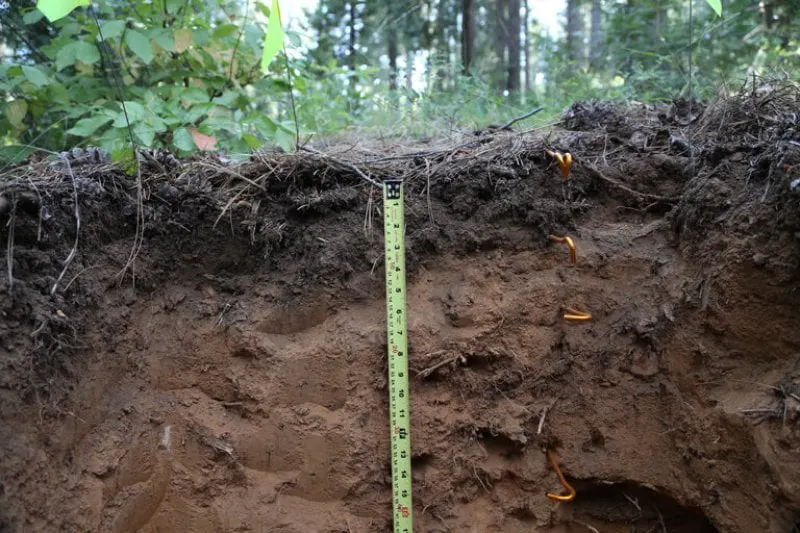GMO crops and glyphosate use can offer carbon sequestration benefits, Canadian study suggests
GMO crops and glyphosate use can offer carbon sequestration benefits, Canadian study suggests


University of Saskatchewan research has concluded that genetically modified canola and the use of glyphosate have increased carbon sequestration in the soil and reduced CO2 emissions from Canadian farmland.
“There is a complementary relationship between the adoption of herbicide-tolerant (HT) canola and conservation tillage, resulting in corresponding changes in GHG emissions,” says a paper published in the journal Sustainability in October. “Saskatchewan farmers have confirmed just how crucial the use of glyphosate is with the complementary technology of HT crops… (to) maintain sustainable land management practices.”
After estimating the changes in soil organic carbon, the authors estimated the change in carbon sequestration from minimal tillage and less summerfallow.
They pegged increased carbon sequestration at “0.14 Mg/ha (tonnes per hectare) from reductions in tillage practices and 0.39 Mg/ha from reductions in summerfallow practices.”
Many of these benefits occurred because of GM canola and glyphosate, the authors said.
Other scientists are less convinced about the benefits of zero-tillage when it comes to improving soil organic carbon.
University of Guelph researchers have found that soil organic carbon in the soil profile is the same in no-till and conventionally tilled systems, even in soil that has been zero tillage for decades.
This is an excerpt. Read the original post here.

 | Videos | More... |

Video: Nuclear energy will destroy us? Global warming is an existential threat? Chemicals are massacring bees? Donate to the Green Industrial Complex!
 | Bees & Pollinators | More... |

GLP podcast: Science journalism is a mess. Here’s how to fix it

Mosquito massacre: Can we safely tackle malaria with a CRISPR gene drive?

Are we facing an ‘Insect Apocalypse’ caused by ‘intensive, industrial’ farming and agricultural chemicals? The media say yes; Science says ‘no’
 | Infographics | More... |

Infographic: Global regulatory and health research agencies on whether glyphosate causes cancer
 | GMO FAQs | More... |

Why is there controversy over GMO foods but not GMO drugs?

How are GMOs labeled around the world?

How does genetic engineering differ from conventional breeding?
 | GLP Profiles | More... |

Alex Jones: Right-wing conspiracy theorist stokes fear of GMOs, pesticides to sell ‘health supplements’




 Viewpoint — Fact checking MAHA mythmakers: How wellness influencers and RFK, Jr. undermine American science and health
Viewpoint — Fact checking MAHA mythmakers: How wellness influencers and RFK, Jr. undermine American science and health Viewpoint: Video — Big Solar is gobbling up productive agricultural land and hurting farmers yet providing little energy or sustainabilty gains
Viewpoint: Video — Big Solar is gobbling up productive agricultural land and hurting farmers yet providing little energy or sustainabilty gains Trust issues: What happens when therapists use ChatGPT?
Trust issues: What happens when therapists use ChatGPT? Fighting deforestation with CO2: Biotechnology breakthrough creates sustainable palm oil alternative for cosmetics
Fighting deforestation with CO2: Biotechnology breakthrough creates sustainable palm oil alternative for cosmetics California, Washington, Oregon forge immunization alliance to safeguard vaccine access against federal undermining
California, Washington, Oregon forge immunization alliance to safeguard vaccine access against federal undermining 30-year-old tomato line shows genetic resistance to devastating virus
30-year-old tomato line shows genetic resistance to devastating virus The free-range chicken dilemma: Better for birds, but with substantial costs
The free-range chicken dilemma: Better for birds, but with substantial costs ‘You have to treat the brain first’: Rethinking chronic pain with Sanjay Gupta
‘You have to treat the brain first’: Rethinking chronic pain with Sanjay Gupta
